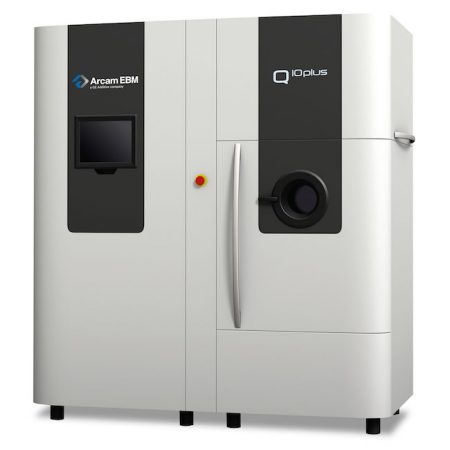
Research Center Industrial Du Québec to use AM technology in jaw implants
Devin Jones
Additive Manufacturing General MedicalGE Additive's Arcam EBM Q10 plus will enable a faster turn-around for customized prosthetics.
 Research Center Industrial Du Québec (CIRQ) recently installed a GE Additive Arcam EBM Q10 plus, focusing on patient-specific, 3D-printed jaw implants.
Research Center Industrial Du Québec (CIRQ) recently installed a GE Additive Arcam EBM Q10 plus, focusing on patient-specific, 3D-printed jaw implants.
The news comes as a part of a medical partnership with the University Hospital of Quebec (CHU de Quebec) where CRIQ’s Director of Industrial Equipment, Francois Gingras will work with cranio-maxillofacial surgeons at five hospitals where CIRQ is the regional medical partner.
CIRQ believes this will enable a faster turn-around, three weeks using AM versus the existing six weeks using traditional manufacturing techniques. In 2017, a year after the partnership began, launched an initiative to open a $2.8 million 3D printing medical centre in Quebec City, with the objective of integrating the facility into all hospitals in the region to provide point-of-care service for the customized prosthesis.
“Additive manufacturing enables companies to manufacture patient-specific implants and customized devices in small batch production, but still in a cost-effective, industrial process,” says Stephan Zeidler, Business Development Manager, Medical, GE Additive. “This way, the technology perfectly serves the trend for more individualized treatments in healthcare.”
The entire supply chain for the AM implementation of these implants will be handled by CRIQ. From design through printing and post-processing through cleaning and sterilization. The organization believes this concentrated and considered approach will help them to enable cost savings while enhancing patient care.
CRIQ is expected to enter full production of its 3D printed implants by January 2020 upon completion of the process of medical certification of additively manufactured mandibles by Health Canada.
“The business case isn’t a part-to-part comparison. It needs to be justified through system-wide impact,” said Gingras. “If a patient-specific implant can accelerate patient recovery, reduce risk, and lower overall healthcare costs for the Quebec Government, then we have a business case.”
